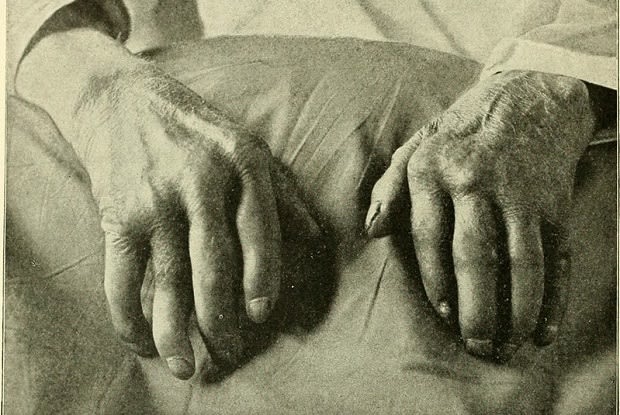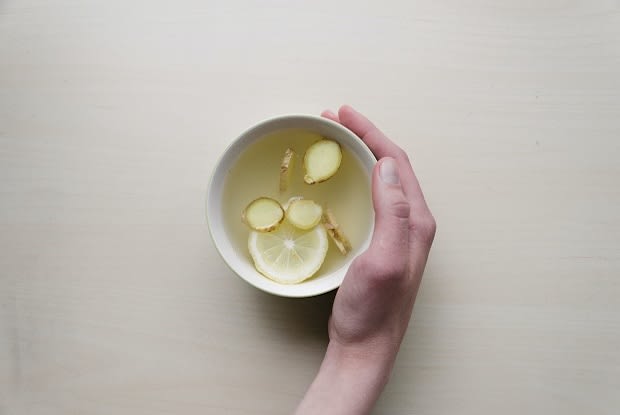Table of Contents
Understanding Gout
Gout is a painful inflammatory condition that affects around 4 percent of the American population. Gout occurs when a natural substance in the blood (uric acid) builds up in the blood. Uric acid forms crystals in the affected joints and causes inflammation, discomfort, and pain. Specific foods can cause this uric acid to accumulate in the big toe, knees, elbows, ankles, or wrists.
Gout pain is more than just uncomfortable aches; gout is the most common type of arthritis in men. This pain can be disabling and cause intense discomfort during gout attacks and lingering aches for several days to weeks. Gout can typically be avoided with a proper diet, but it can also be hereditary. The symptoms of gout can include intense joint pain, long-term discomfort, inflammation, redness, as well as a limited range of motion in the affected joint.
Gout attacks occur sporadically, but it is vital to get a handle on your gout condition even if you only experience attacks once or twice a year. There are several natural remedies you can try at home to reduce your symptoms. As mentioned, gout can be severe, so more powerful drug prescriptions like Colchicine will also be necessary alongside natural supplements. Supplements may help with some symptoms, but always consult your doctor before taking any of these substances. Read on to learn more about some natural treatments to help with pain and inflammation associated with gout. [1]
Get savings updates for Colchicine
Magnesium
Magnesium is a natural mineral that can be found in leafy green vegetables, nuts, and whole grains. Magnesium has many benefits to the body because it can control the use of calcium in the body and help with the function of the heart and kidneys. Gout can affect the heart, so it is important to reduce the strain on this important muscle.
Magnesium can help reduce gout attacks by improving blood flow. Good circulation makes it more difficult for uric acid to crystalize on the joints. Magnesium may help with gout, but you may experience a temporary change in digestion and possibly diarrhea. Always talk with your doctor before starting a magnesium regime because it can lower blood pressure and heart rate. In extreme cases, an overdose of magnesium can cause you to fall into a coma. [2]

Ginger
Ginger has been used as a natural treatment for over 5,000 years. Ginger is an anti-inflammatory, as well as an antioxidant. The agents within ginger can help suppress uric acid crystals in the blood. This suppression may relieve the pain of a gout flare-up and possibly make it less likely to happen again in the future. Ginger is readily available in most supermarkets and is typically inexpensive. You can incorporate ginger into your cooking, but it can also be used in the following ways:
Ginger compress: Boil ginger and then soak a small towel in the ginger water. You can then apply this compress to the affected area.
Ginger paste: You can mash ginger root and combine with water to make a poultice. This paste can then be applied to the painful joint.
Ginger Tea: Boil some cut up pieces of ginger root and boil them in a saucepan of water. You can drink this mixture like a tea once it cools down.
Ginger capsules: This is often the safest way to consume ginger or any supplement for that matter. With capsules, you can control precisely how much ginger you are consuming, which minimizes the danger of taking too much. [3]

Cherries
The Arthritis Health website performed an extensive online survey to determine the effectiveness of cherries on gout symptoms. This survey asked people with gout to report their experiences over the course of the year. Those who ate cherries or supplemented with cherry extract were 37 percent less likely to report gout attacks than people who did not consume cherries. For those who ate cherries and also took allopurinol, a drug prescribed to reduce urate in the blood, were 75 percent less likely to report gout attacks.
Scientists are not completely certain how the nutrients in cherries interact with gout. They theorize that cherries may have the following beneficial effects on gout:
- Cherries may reduce oxidative stress (excess of free radicals in the body). Too much oxidative stress can promote inflammation in the body.
- Cherries have anti-inflammatory properties that reduce the inflammation associated with gout.
- Cherries may also counteract the process that causes bone and joint deformity in gout-affected joints.
If you want to consume more cherries to help your gout, you can get 100 percent unsweetened cherry juice, cherry extract (liquid, tablet, or powder form), as well as fresh or frozen tart cherries. [4]
Plants and Flowers
Gout can be affected by several natural plants. The following flowers and plants are reported to help with the symptoms of gout.
Hibiscus: This garden flower is used as a tea, food, and traditional herbal remedy. You can consume hibiscus in a supplement, tea, or exact form. Studies on rats have shown that hibiscus might lower uric acid levels.
Dandelion: Dandelion is thought to improve liver and kidney health. These organs can be affected by gout, so consuming dandelion tea may improve the health of your kidneys and relieve gout symptoms.

Milk Thistle seeds: Milk thistle is typically used to improve the health of the liver. A 2016 study on rats found that milk thistle can lower uric acid along with conditions that may damage the kidneys. Always follow proper dosing instructions.
Stinging nettle: Stinging nettle leaf is a gentle diuretic that can help the body process and flush away toxins. It can flush out the kidneys and bladder and may reduce inflammation and pain. To consume this leaf, you can brew it as a tea, using one to two teaspoons of dried nettle per cup of water. [5]
The content in this article is intended for informational purposes only. This website does not provide medical advice. In all circumstances, you should always seek the advice of your physician and/or other qualified health professionals(s) for drug, medical condition, or treatment advice. The content provided on this website is not a substitute for professional medical advice, diagnosis or treatment.
